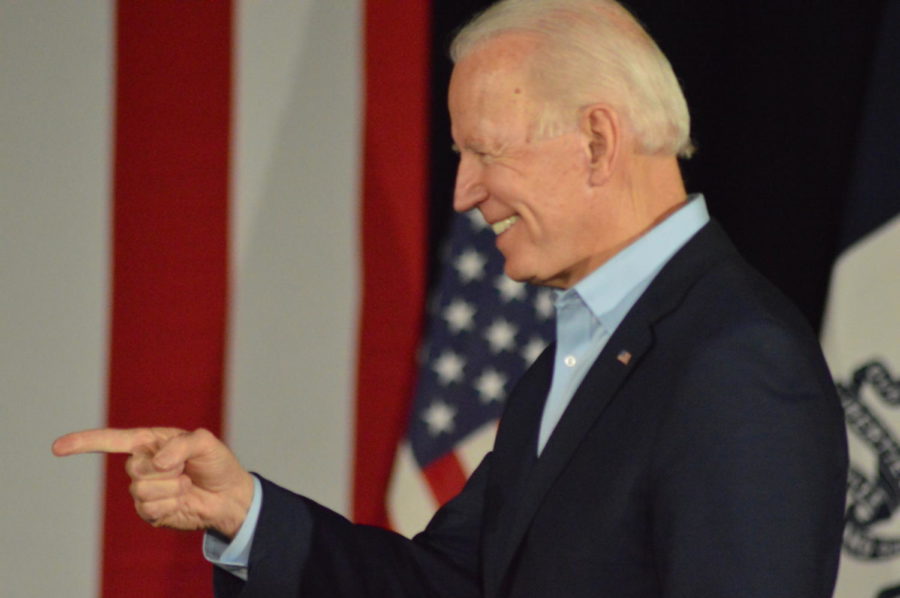Democratic trifecta paves the way for Biden’s policies
Joe Biden has run for president a total of three times, his first time being in 1988 and second in 2008.
January 7, 2021
After Georgia’s special election Tuesday with Raphael Warnock and Jon Ossoff elected to the United States Senate, the Democratic Party finds itself in a position it hasn’t in six years: it has control of the presidency and both houses of Congress, albeit with a razor thin majority.
Not since 2014, prior to the midterm elections during former President Barack Obama’s second presidential term, have Democrats had this trifecta, which historically has enabled a president to push through a sweeping legislative agenda without having to make significant compromises with the opposing party.
However, with each party controlling fifty seats in the Senate, meaning the Democratic majority comes from the ability of Vice President-elect Kamala Harris to cast a tie-breaking vote, and the Democratic margin in the House of Representatives shrinking from 36 seats to just 11, Biden’s plans may not be able to be quite so sweeping.
“Biden will have to pursue some of his more middle-of-the-road policies,” said Kelly Shaw, associate teaching professor of political science. “The party does have a more of a far-left wing of which he’s not a part. He sold himself as a centrist, so he’s going to have to figure out how to navigate that going forward, who his friends are, even on the other side of the aisle.”
Despite a less ambitious agenda than what could have been possible with a stronger majority, Shaw says it’s likely to see fairly aggressive action from the Biden administration in the early days of his term, especially on fighting coronavirus and further pandemic relief, as well as foreign policy and immigration.
“Broadly, we’ll see a lot of focus on public health, fighting the pandemic and vaccine rollout,” Shaw said. “Sadly, we’ve seen a lot of damage in terms of foreign policy. He’ll be focusing on reestablishing the United States as a leader in foreign policy.”
Beyond his first 100 days in office, a term coined by Franklin Roosevelt that has since taken on symbolic significance, and even with the slim Democratic majority, Biden will still be able to pursue a bolder agenda than he would have with a divided government, and it’s likely that more bipartisan legislating will take place, according to Shaw. The first 100 days will also serve as an indicator of what the next two years will look like.
“We’ll see Biden focusing on economic reforms, reversing corporate tax cuts and turning his attention toward the environment, another thing damaged, in a protection sense, under Trump,” Shaw said. “The first two years will be a bit of a honeymoon period.”
Also potentially in play this session of Congress will be the Senate filibuster, which some have speculated Democrats may eliminate. The filibuster is a procedure tool that allows a member of congress to “talk out” a matter on the chamber floor, talking so long as to delay or entirely prevent the bill or action from coming up for a vote. Overcoming a filibuster on most actions requires a three-fifths majority, or 60 senators, to vote to do so.
In 2013, Senate Democrats, led by Harry Reid (D-NV), voted for the so-called “nuclear option,” reducing the three-fifths threshold for ending debate to a simple majority, and effectively eliminating the filibuster for executive branch and judicial nominations, save for Supreme Court nominations. In 2017, Senate Republicans, led by Mitch McConnell (R-KY), took the nuclear option further, eliminating the filibuster for Supreme Court nominees as well.
However, Shaw thinks the elimination of the filibuster altogether is unlikely, as it would ultimately hurt the party when it is no longer in power.
“With [Wednesday’s U.S. Capitol] riots, I think many of them [in the Senate] will reconsider the sanctity of these institutions and hope some lessons were learned in terms of playing within the rules,” Shaw said. “What’s good for the goose is good for the gander.”
Regardless of what policy agenda Biden pursues, his time could very well be limited. With such narrow majorities in the House and Senate, Democrats could easily lose their majorities in at least one chamber in the 2022 midterm elections, Shaw said.
Uncertainties abound as any new administration takes the reins of the country, but given recent history, Shaw said the polarization and partisanship experienced in recent years is unlikely to abate but expressed hope that Wednesday’s riot would be an eye-opening experience for many national leaders.
“It doesn’t solve the partisan issues,” Shaw said, “but I hope that policymakers realize that it has gone on for too long. The division that exists is not healthy for the nation.”






